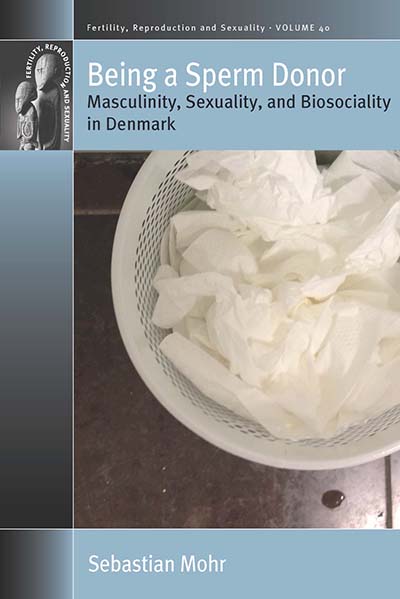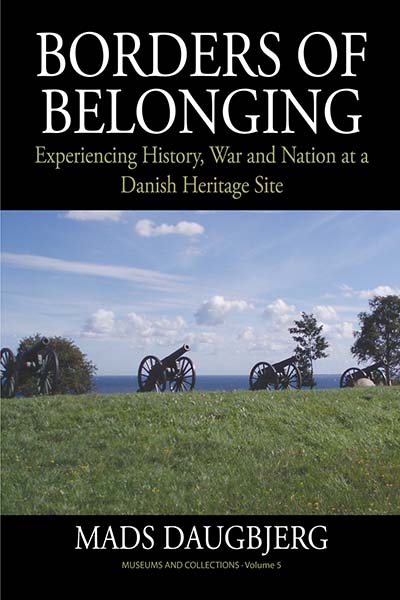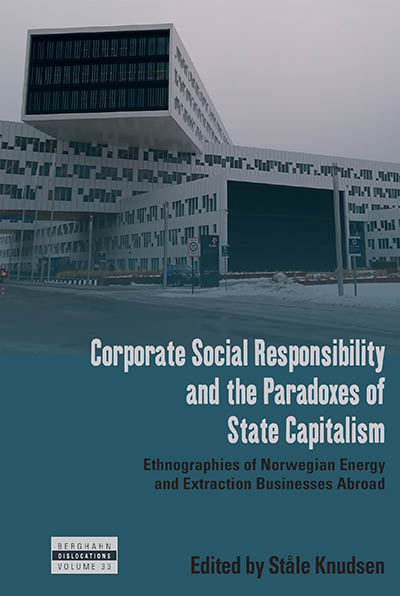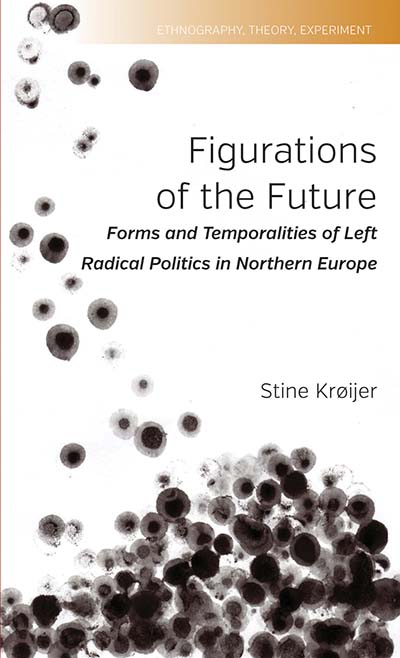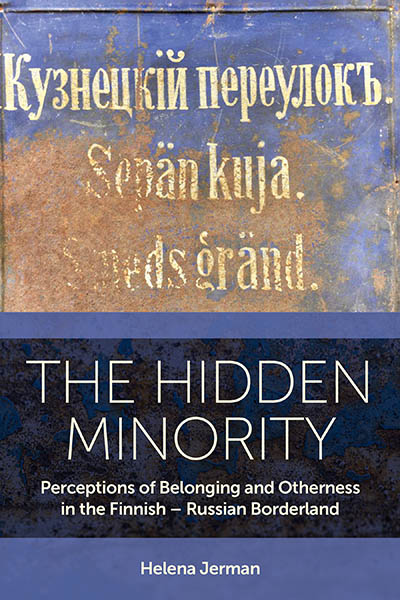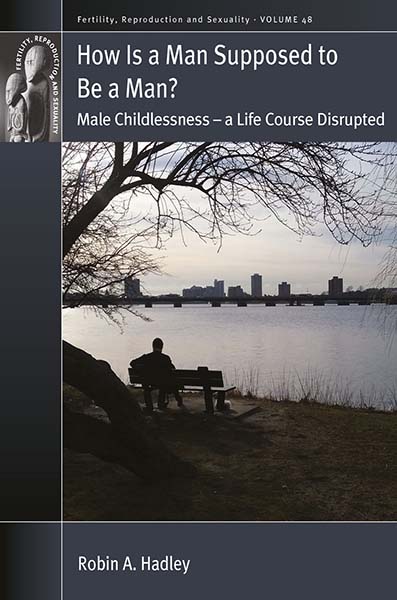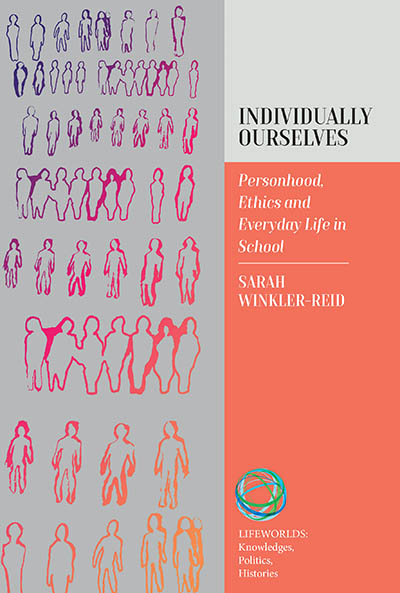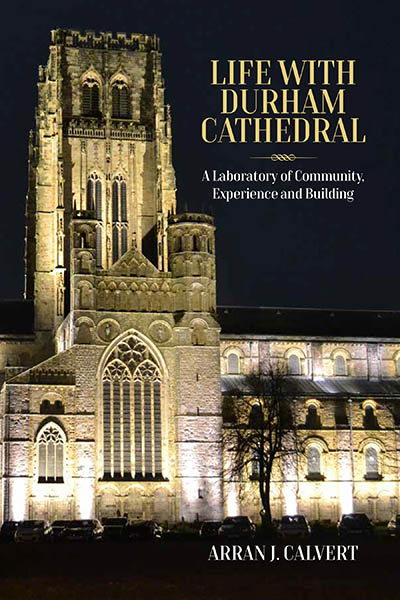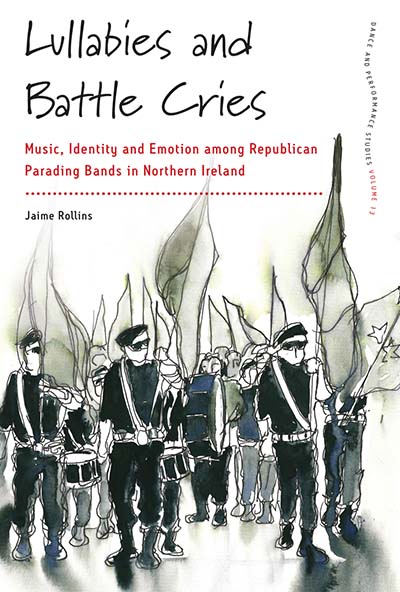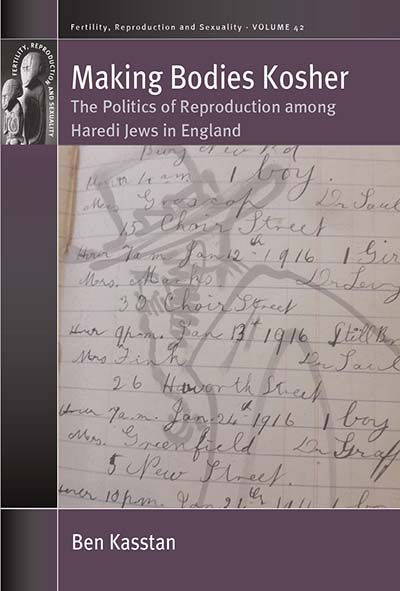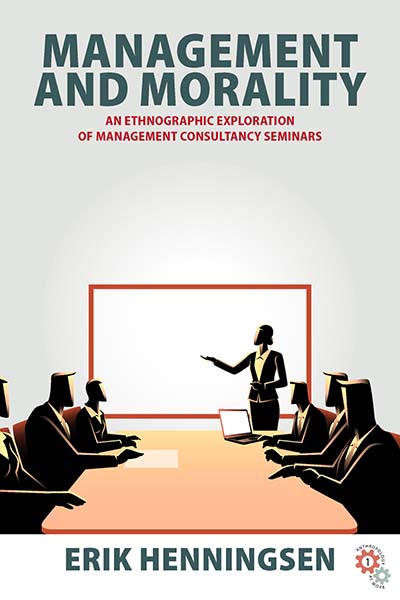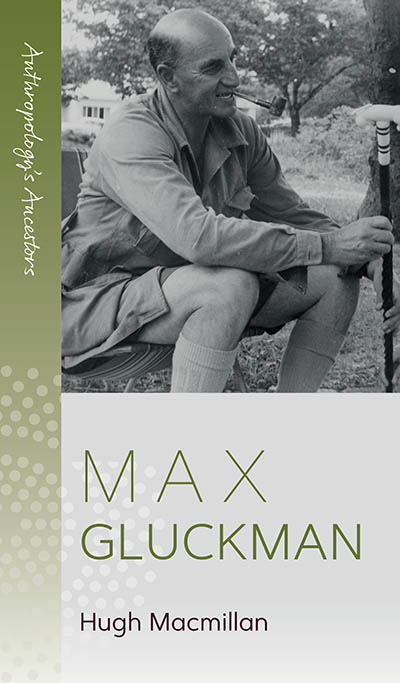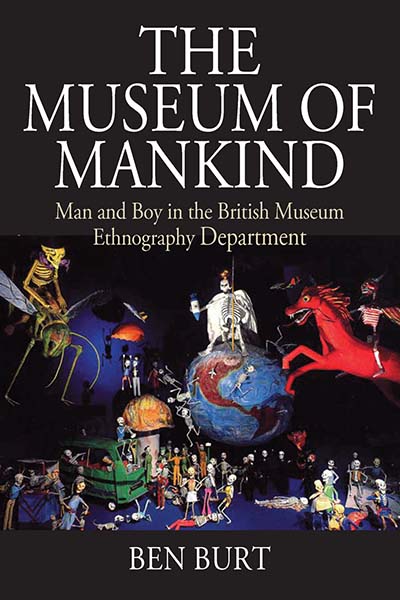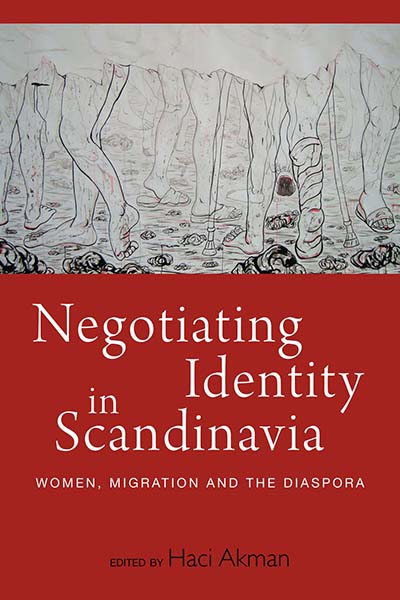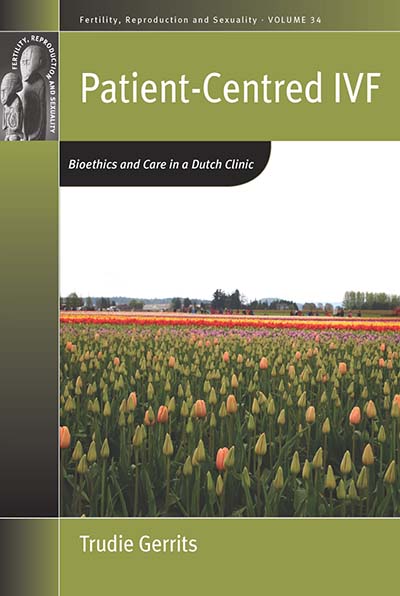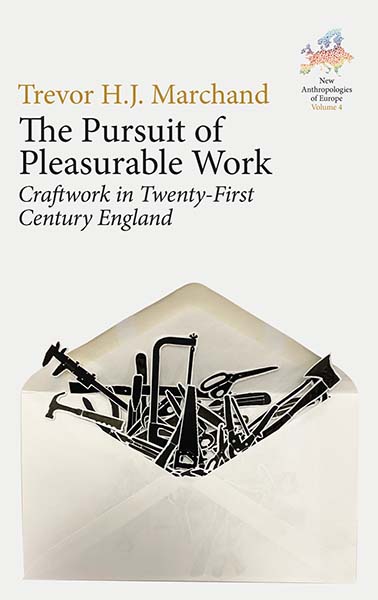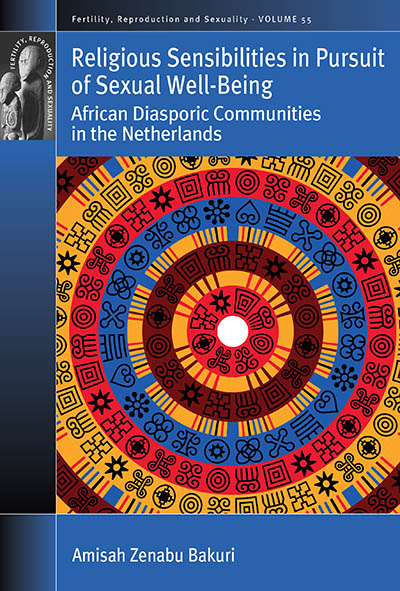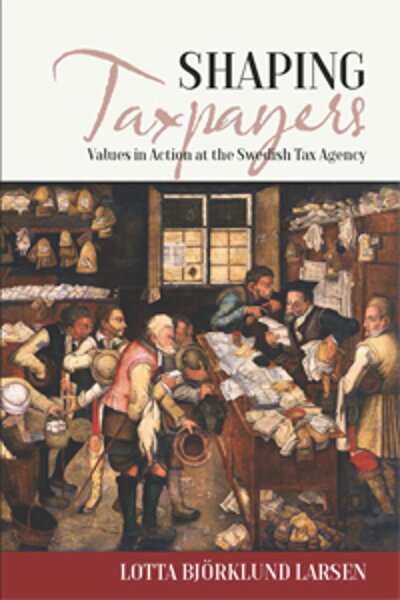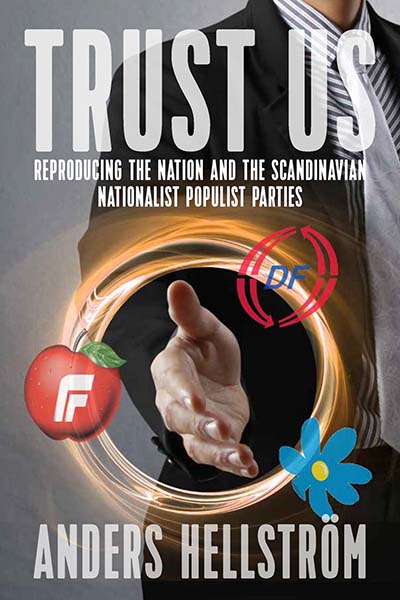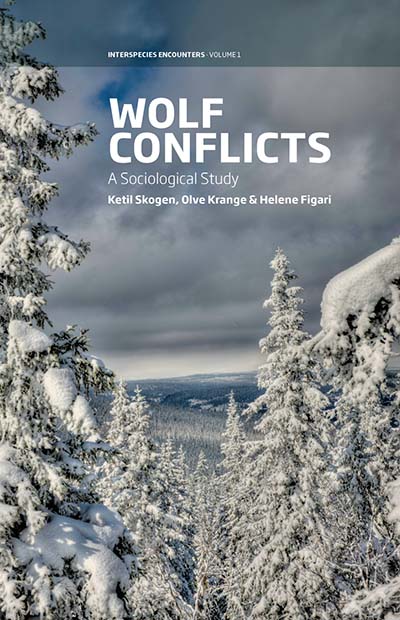Home -> Browse
-

Being a Sperm Donor
Masculinity, Sexuality, and Biosociality in Denmark
Mohr, S.
What does it mean to be a man in our biomedical day and age? Through ethnographic explorations of the everyday lives of Danish sperm donors, Being a Sperm Donor explores how masculinity and sexuality are reconfigured in a time in which the norms and logics of (reproductive) biomedicine have become ordinary. It investigates men’s moral reasoning regarding donation, their handling of transgressive experiences at the sperm bank, and their negotiations of gender, sexuality, intimacy, and relatedness, showing how the socio-cultural and political dimensions of (reproductive) biomedicine become intertwined with men’s intimate sense of self.
Subjects: Medical Anthropology Gender Studies and Sexuality Sociology
Area: Northern Europe
-

Borders of Belonging
Experiencing History, War and Nation at a Danish Heritage Site
Daugbjerg, M.
In an era cross-cut with various agendas and expressions of national belonging and global awareness, “the nation” as a collective reference point and experienced entity stands at the center of complex identity struggles. This book explores how such struggles unfold in practice at a highly symbolic battlefield site in the Danish/German borderland. Comprised of an ethnography of two profoundly different institutions – a conventional museum and an experience-based heritage center – it analyses the ways in which staff and visitors interfere with, relate to, and literally “make sense” of the war heritage and its national connotations. Borders of Belonging offers a comparative, in-depth analysis of the practices and negotiations through which history is made and manifested at two houses devoted to the interpretation of one event: the decisive battle of the 1864 war in which Otto von Bismarck, on his way to uniting the new German Empire, led the Prussian army to victory over the Danish. Working through his empirical material to engage with and challenge established theoretical positions in the study of museums, modernity, and tourism, Mads Daugbjerg demonstrates that national belonging is still a key cultural concern, even as it asserts itself in novel, muted, and increasingly experiential ways.
Subjects: Heritage Studies Travel and Tourism Museum Studies Memory Studies
Area: Northern Europe
-

Corporate Social Responsibility and the Paradoxes of State Capitalism
Ethnographies of Norwegian Energy and Extraction Businesses Abroad
Knudsen, S. (ed)
Through a series of case studies in diverse regions of the world, this book explores how transnational Norwegian energy and extractive industries handle corporate social responsibility (CSR) when operating abroad in places such as China, Brazil, and Turkey. With significant state ownership and embeddedness in the Nordic societal model, Norwegian capitalism is often represented as “benign” or ethical. By tracing CSR policy and practice—from headquarters to operations—this volume critically explores the workings of Norwegian corporate capitalism and its engagement with key issues of responsibility, accountability, and sustainability.
Subjects: Political and Economic Anthropology Environmental Studies (General) Applied Anthropology Sustainable Development Goals
Area: Northern Europe
-

The Everyday Politics of Food Co-ops
Care, Aid and Community in Austerity Britain
Plender, C.
National politics has a significant impact on organizing and accessing community welfare. This book engages with notions of everyday politics within two London-based food co-ops emerging from different political environments and ideologies. It provides a careful and engaging examination of the experiences of political and economic change in Austerity Britain, revealing how national politics came to punctuate everyday lives within the co-ops. It highlights the political resonances that practices of care, aid and community organizing came to have within the food co-ops at a time of rapid welfare withdrawal, as well as the tensions between more radical and neoliberal imaginaries that played out within them.
Subjects: Political and Economic Anthropology Sociology
Area: Northern Europe
-

Figurations of the Future
Forms and Temporalities of Left Radical Politics in Northern Europe
Krøijer, S.
Built around key events, from the eviction of a self-managed social centre in Copenhagen in 2007 to the Climate Summit protests in 2009, this book contributes to anthropological literature on contemporary Euro-American politics foreshadowing recent waves of public dissent. Stine Krøijer explores political forms among left radical and anarchist activists in Northern Europe focusing on how forms of action engender time. Drawing on anthropological literature from both Scandinavia and the Amazon, this ethnography recasts theoretical concerns about body politics, political intentionality, aesthetics, and time.
Subjects: Anthropology (General) Political and Economic Anthropology
Area: Northern Europe
-

Haunting Futures
Crisis, Migration and Anticipation in Iceland
Pawlak, M.
The 2008 economic collapse in Iceland sent its residents into a destabilising crisis with far-reaching, temporal and affective consequences. Haunting Futures explores how the complex relationships of this unstable past and the anticipatory modes of the ongoing present keep Icelanders and the Polish migrant community in their midst alert to looming futures in crisis. It offers insights into timely crisis-ridden impacts and imaginings, migration processes and social understandings and practices. Through its attention to how people engage with crisis temporally and affectively, the book presents the crisis not simply as an isolated and distressing event but as a spectre embodied in time through ongoing anticipation.
Subjects: Political and Economic Anthropology Sociology History: 20th Century to Present Sustainable Development Goals
Area: Northern Europe
-

The Hidden Minority
Perceptions of Belonging and Otherness in the Finnish – Russian Borderland
Jerman, H.
Looking at the Finnish–Russian borderland as a transnational space and claiming that there is a need to understand the long-term effects of migration – a continuing process spanning several generations – The Hidden Minority takes a multi-temporal perspective on mobility and belonging. The focus of this ethnographic study is the Russian minority in Finland, which is socially, economically, politically and culturally heterogeneous.The Russian minority in Finland is imbued with ’being hidden‘ or ’hiding oneself‘. The book explores informants’ reflections, together with the author, on the mental and physical crossing of national borders. Perceptions of belonging and/or Otherness and lived experience reveal a complex relationship of embodied memory, history, time and a multi-national social space.
Subjects: Refugee and Migration Studies Political and Economic Anthropology Sociology
Area: Northern Europe
-

How is a Man Supposed to be a Man?
Male Childlessness – a Life Course Disrupted
Hadley, R. A.
The global trend of declining fertility rates and an increasingly ageing population has serious implications for individuals and institutions alike. Childless men are mostly excluded from ageing, social science and reproduction scholarship and almost completely absent from most national statistics. This unique book examines the lived experiences of a hidden and disenfranchised population: men who wanted to be fathers. It explores the complex intersections that influence childlessness over the life course.
Subjects: Gender Studies and Sexuality Anthropology (General)
Area: Northern Europe
-

Individually Ourselves
Personhood, Ethics, and Everyday Life in School
Winkler-Reid, S.
Drawing on ethnographic fieldwork in a London high school, Individually Ourselves demonstrates how young people elaborate notions of individual personhood through their friendships, and pervasive peer ethics, shaped in and through relations of power and inequality. By examining the interplay between ourselves and others during such a formative time of life, the book addresses how individuality is produced in everyday life and how our interactions help create the person we become.
Subjects: Anthropology (General) Educational Studies Sociology
Area: Northern Europe
-

Life as a Migrant Muslim Woman in Sectarian Northern Ireland
An Exploration of Gender, Visibility, Movement and Placemaking
Lubit, A. J.
The lives of migrant Muslim women in divided, post-conflict Northern Ireland, both before and after the pandemic, are full of diverse stories and experiences of belonging. This book explores how women strive to belong and create a home despite pervasive hatred, sexism and racism. Under these circumstances, women employ various strategies to connect with people and places around them. Using personal stories, this book considers the relationships migrant Muslim women develop, the places they spend time and the activities they engage with. These stories are used to demonstrate the interconnectedness of gender, visibility, movement and placemaking as analytical concepts.
Subjects: Anthropology (General) Gender Studies and Sexuality Refugee and Migration Studies
Area: Northern Europe
-

Life with Durham Cathedral
A Laboratory of Community, Experience and Building
Calvert, A. J.
An ethnographic account of daily life in Durham Cathedral, this book examines the processes of negotiation and change between a community and their cathedral. Focusing on the role of sound, light, time, space, building and dwelling, the author argues that Durham Cathedral is much more than just a backdrop to everyday life. Rather, through the constant processes of negotiation and change, it is a fully engaged participant in the daily lives of those who use Durham Cathedral. As such, it is not a place in which life happens, but a place with which life happens.
Subjects: Heritage Studies Anthropology (General) Anthropology of Religion
Area: Northern Europe
-

Lullabies and Battle Cries
Music, Identity and Emotion among Republican Parading Bands in Northern Ireland
Rollins, J.
Set against a volatile political landscape, Irish republican culture has struggled to maintain continuity with the past, affirm legitimacy in the present, and generate a sense of community for the future. Lullabies and Battle Cries explores the relationship between music, emotion, memory, and identity in republican parading bands, with a focus on how this music continues to be utilized in a post-conflict climate. As author Jaime Rollins shows, rebel parade music provides a foundational idiom of national and republican expression, acting as a critical medium for shaping new political identities within continually shifting dynamics of republican culture.
Subjects: Performance Studies Anthropology (General)
Area: Northern Europe
-

Making Bodies Kosher
The Politics of Reproduction among Haredi Jews in England
Kasstan, B.
Minority populations are often regarded as being ‘hard to reach’ and evading state expectations of health protection. This ethnographic and archival study analyses how devout Jews in Britain negotiate healthcare services to preserve the reproduction of culture and continuity. This book demonstrates how the transformative and transgressive possibilities of technology reveal multiple pursuits of protection between this religious minority and the state. Making Bodies Kosher advances theoretical perspectives of immunity, and sits at the intersection of medical anthropology, social history and the study of religions.
Subjects: Medical Anthropology Jewish Studies Anthropology of Religion
Area: Northern Europe
-

Management and Morality
An Ethnographic Exploration of Management Consultancy Seminars
Henningsen, E.
Drawing on extended ethnographic studies of management consultancies in the Oslo region of Norway, this book seeks to find a richer understanding of their role in contemporary work life and the attraction their practices exert on people. The author shows that management consultancy is an arena of meaning that should be analysed as a ‘cultural space’. With a detailed investigation into consultancy as a cultural phenomenon, Henningsen argues that its services can be viewed as a ‘micro-utopian’ vision which can lead to a happier working environment for individuals.
Subjects: Anthropology (General) Cultural Studies (General) Applied Anthropology
Area: Northern Europe
-

Max Gluckman
Macmillan, H.
This handy, concise biography describes the life and intellectual contribution of Max Gluckman (1911-75) who was one the most significant social anthropologists of the twentieth century.
Max Gluckman was the founder in the 1950s of the Manchester School of Social Anthropology. He did fieldwork among the Zulu of South Africa in the 1930s and the Lozi of Northern Rhodesia/Zambia in the 1940s. This book describes in detail his academic career and the lasting influence of his Analysis of A Social Situation in Modern Zululand (1940-42) and of his two large monographs on the legal system of the Lozi.
From the Introduction:
Max Gluckman was the most influential of a group of social anthropologists who emerged from South Africa during the 1930s into what was essentially a new academic discipline. His description and analysis of events in real time implied a rejection of contemporary social anthropological practice, of the ‘ethnographic present’, and of hypothetical or conjectural reconstructions and an acceptance of the need to study ‘primitive’ societies in the context of the modern world.Subjects: Anthropology (General) Theory and Methodology
Areas: Africa Northern Europe
-

The Museum of Mankind
Man and Boy in the British Museum Ethnography Department
Burt, B.
The Museum of Mankind was an innovative and popular showcase for minority cultures from around the non-Western world from 1970 to 1997. This memoir is a critical appreciation of its achievements in the various roles of a national museum, of the personalities of its staff and of the issues raised in the representation of exotic cultures. Issues of changing museum theory and practice are raised in a detailed case-study that also focuses on the social life of the museum community. This is the first history of a remarkable museum and a memorable interlude in the long history of one of the world’s oldest and greatest museums. Although not presented as an academic study, it should be useful for museum and cultural studies as a well as a wider readership interested in the British Museum.
Subjects: Museum Studies Anthropology (General) Cultural Studies (General)
Area: Northern Europe
-

Negotiating Identity in Scandinavia
Women, Migration, and the Diaspora
Akman, H. (ed)
Gender has a profound impact on the discourse on migration as well as various aspects of integration, social and political life, public debate, and art. This volume focuses on immigration and the concept of diaspora through the experiences of women living in Norway, Sweden, and Denmark. Through a variety of case studies, the authors approach the multifaceted nature of interactions between these women and their adopted countries, considering both the local and the global. The text examines the “making of the Scandinavian” and the novel ways in which diasporic communities create gendered forms of belonging that transcend the nation state.
Subjects: Anthropology (General) Gender Studies and Sexuality Refugee and Migration Studies
Area: Northern Europe
-

Not the Troubles
Alternative Narratives from Belfast
Lane, K.
Belfast is often analysed as a divided society, anchored in ethno-politico-religious differences amid a long history of conflict. However, shifting the focus of academic attention reveals a range of alternative narratives of city life. Using storytelling as a leitmotif, this ethnographic account explores the epistemological validity of engaging with strangers in a range of settings, such as street corners, a hairdresser’s and a storytelling evening. It considers how creative writers represent life in Belfast. The author employs a variety of methods, including a dog as a research assistant and storytelling on location which demonstrates how people can re-shape and re-narrate life in Belfast.
Subject: Anthropology (General)
Area: Northern Europe
-

Patient-Centred IVF
Bioethics and Care in a Dutch Clinic
Gerrits, T.
Contemporary Dutch policy and legislation facilitate the use of high quality, accessible and affordable assisted reproductive technologies (ARTs) to all citizens in need of them, while at the same time setting some strict boundaries on their use in daily clinical practices. Through the ethnographic study of a single clinic in this national context, Patient-Centred IVF examines how this particular form of medicine, aiming to empower its patients, co-shapes the experiences, views and decisions of those using these technologies. Gerrits contends that to understand the use of reproductive technologies in practice and the complexity of processes of medicalization, we need to go beyond ‘easy assumptions’ about the hegemony of biomedicine and the expected impact of patient-centredness.
Subject: Medical Anthropology
Area: Northern Europe
-

The Pursuit of Pleasurable Work
Craftwork in Twenty-First Century England
Marchand, T. H. J.
Against the backdrop of an alienating, technologizing and ever-accelerating world of material production, this book tells an intimate story: one about a community of woodworkers training at an historic institution in London’s East End during the present ‘renaissance of craftsmanship’. The animated and scholarly accounts of learning, achievement and challenges reveal the deep human desire to create with our hands, the persistent longing to find meaningful work, and the struggle to realise dreams. In its penetrating explorations of the nature of embodied skill, the book champions greater appreciation for the dexterity, ingenuity and intelligence that lie at the heart of craftwork.
Subjects: Anthropology (General) Sociology
Area: Northern Europe
-

Religious Sensibilities in Pursuit of Sexual Well-Being
African Diasporic Communities in the Netherlands
Bakuri, A. Z.
The self-identifying Ghanaian-Dutch and Somali-Dutch communities residing in the Randstad area of the Netherlands are deeply impacted by religious beliefs and cultural factors in their approach towards sexual health practices, well-being and pleasure. This book shows how religious sensibilities shape the physical activities, beauty practices, and gendered roles that are adopted into the daily lives of these communities in pursuit of their sexual and general well-being. Through an ethnographic account, it explores and challenges the assumptions held around the complex relationship between religion and sexuality.
Subjects: Gender Studies and Sexuality Anthropology (General) Anthropology of Religion
Area: Northern Europe
-

Shaping Taxpayers
Values in Action at the Swedish Tax Agency
Björklund Larsen, L.
How do you make taxpayers comply? This ethnography offers a vivid, yet nuanced account of knowledge making at one of Sweden’s most esteemed bureaucracies – the Swedish Tax Agency. In its aim to collect taxes and minimize tax faults, the Agency mediates the application of tax law to ensure compliance and maintain legitimacy in society. This volume follows one risk assessment project’s passage through the Agency, from its inception, through the research phase, in discussions with management to its final abandonment. With its fiscal anthropological approach, Shaping Taxpayers reveals how diverse knowledge claims – legal, economic, cultural – compete to shape taxpayer behaviour.
Subjects: Anthropology (General) Political and Economic Anthropology
Area: Northern Europe
-

Trust Us
Reproducing the Nation and the Scandinavian Nationalist Populist Parties
Hellström, A.
In Scandinavia, there is separation in the electorate between those who embrace diversity and those who wish for tighter bonds between people and nation. This book focuses on three nationalist populist parties in Scandinavia—the Sweden Democrats, the Progress Party in Norway, and the Danish People’s Party. In order to affect domestic politics by addressing this conflict of diversity versus homogeneity, these parties must enter the national parliament while earning the nation’s trust. Of the three, the Sweden Democrats have yet to earn the trust of the mainstream, leading to polarized and emotionally driven public debate that raises the question of national identity and what is understood as the common man.
Subjects: Sociology History: 20th Century to Present
Area: Northern Europe
-

Wolf Conflicts
A Sociological Study
Skogen, K., Krange, O., & Figari, H.
Wolf populations have recently made a comeback in Northern Europe and North America. These large carnivores can cause predictable conflicts by preying on livestock, and competing with hunters for game. But their arrivals often become deeply embedded in more general societal tensions, which arise alongside processes of social change that put considerable pressure on rural communities and on the rural working class in particular. Based on research and case studies conducted in Norway, Wolf Conflicts discusses various aspects of this complex picture, including conflicts over land use and conservation, and more general patterns of hegemony and resistance in modern societies.
Subjects: Sociology Environmental Studies (General)
Area: Northern Europe
-

Working the Fabric
Resourcefulness, Belonging and Island Life in Scotland’s Harris Tweed Industry
Nascimento, J.
Trademark-protected since 1910, the famous woollen cloth known as Harris Tweed can only be produced in the Outer Hebrides of Scotland – yet it is exported to over 50 countries around the world. Examining contemporary experiences of work and life, this book is the first in-depth anthropological study of the renowned textile industry, complementing and updating existing historical and ethnographic research. Drawing on one year of ethnographic fieldwork research in the Outer Hebrides, it offers an intimate account of industry workers’ lived experiences and contributes to anthropological debates on work and labour, cultural production, inclusive belonging and place-making in global capitalism.
Subjects: Anthropology (General) Sociology Cultural Studies (General)
Area: Northern Europe


